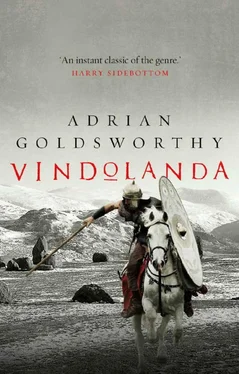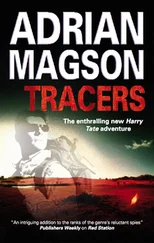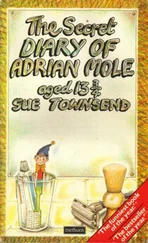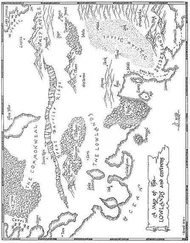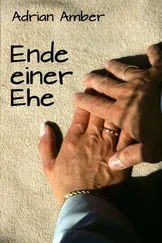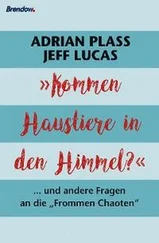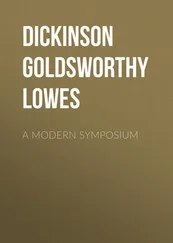‘Blood of king, blood of queen!’ The Britons came forward, men flooding around the priest so that he was lost from view. ‘Blood!’ came the scream from thousands of voices.
‘Silence in the ranks. Prepare to advance.’ The centurion standing a pace ahead of the cluster of standards at the centre of the cohort of II Augusta shouted clear over the din. ‘Keep in rank and follow the standards. Forward, march.’
The four cohorts in the first line stepped off, for it was always better to meet the enemy on the move. Ferox and the cavalry were ordered to hang back and protect the flank of the infantry, but he saw Masclus send one of his turmae forward to skirmish and that was the right thing.
‘Good luck, men!’ Neratius Marcellus had the rich, carrying voice of a trained orator. Ferox had not seen him come, but he was riding along behind his front rank and urging his men on.
‘Blood!’ screamed the Britons and charged.
IT DOES NOT take long for a running man to cover two hundred paces. Already the archers were pelting back as fast as they could to take shelter behind the cohorts, and Ferox hoped that the crews of the scorpiones were carrying the machines to safety. Ahead of him, the enemy were more cautious, not sure whether it was wise to charge horsemen. They came at a walk, hanging back, and he could see no true warriors or even the tattooed fanatics of the Stallion. Masclus’ troopers began to throw javelins into the mass and as men started to fall the Britons stuttered to a halt.
All along the rest of the front, the enemy charged as fast as they could run. They did not come in a solid line because the keenest, bravest – and the most foolish – went far faster than the rest. Knots of men, mainly the fanatics along with a few groups of true warriors, outstripped the crowd. Others swung to the side to follow their lead so that instead of one great wave it was like the fingers of an outstretched hand jabbing towards the Romans. Ferox had seen the same thing happen many times, but today the mixture of inexperience and wild enthusiasm meant that it happened a lot faster. As always the groups of bold men aimed at the heart of the nearest Roman formation.
‘Pila!’ the centurion called out to the men of II Augusta and the front rank raised their slim javelins ready to throw. Already the space between the battle lines had shrunk so that the nearest group of Britons was no more than fifty paces away. They kept coming, and even the leaders were splitting up as each ran at his own pace. Ferox could no longer hear any words in their chant, just a scream where rage mixed with terror. The gap was down to thirty paces, then twenty, and the leading Britons did not slow, but if anything went faster. They were the Stallion’s men, half of them stripped naked just like their leader, and all covered in tattoos.
Over towards the centre the Batavians’ chant surged up into a roar and Ferox could see both cohorts charging, throwing their javelins as they went. The legionaries of II Augusta still waited, the nearest Britons within ten paces, and he was afraid that their senior centurion had left it too late.
‘Now!’ The centurion swung his arm down as his men jogged three paces and the front rank threw their pila with that familiar grunt of effort. The second rank waited a couple of heartbeats and then lobbed their own missiles, and then the third rank did the same, hurling them straight forward because they could not see well past the men in front.
Three great volleys, each of more than two hundred pila, hummed as they flew through the air and then slammed into the charging Britons and it was as if they were hit by a gale blowing hard off the sea. Their small shields were little protection and men were flung back as the heavy missiles drove deep into their flesh. Ferox saw one warrior manage to catch a pilum on his shield, and watched the man stagger as the point burst through the wood, pierced his arm and stuck out for a good six inches. Then a second heavy javelin hit him in the side of the head, sticking fast even when he was pitched on to the ground.
The Britons’ wild charge had broken open their formation, and plenty of the missiles missed the mark and stuck into the grass, but dozens of men were dead, scores crippled, others wounded and all stunned. The chanting had stopped and there was no noise apart from screams of pain and moans of suffering. The charge had been broken, and the Britons reeled as they tried to recover their balance. In the centre the two Batavian cohorts had gone from a gentle jog into a flat run and hit the wavering enemy, punching with the bosses of their shields and stabbing at their opponents.
‘Swords!’ The legionaries of II Augusta reached down with their right hands, grabbed the hilts of their short swords and pushed down, sliding the blades free of their scabbards.
‘Follow me!’ The centurion started to run. ‘Charge!’ The order turned into a yell of rage and the legionaries joined in, so that they roared at the enemy as they went forward.
The Britons did not run. Many men, staggered by the volleys of pila and then faced by a rush of metal-clad, screaming soldiers, would have broken and fled. The boldest were down, for none of the men at the front remained on their feet, but the others were either too stunned or too stubborn to give way. They bunched together, a rough line forming quickly, and men raised their weapons. A few of them flung javelins and one of the legionaries was hit in the face and fell in a clatter of armour and equipment. The Romans ran at the enemy, but when they realised that the Britons were standing and waiting the legionaries slowed. Only a fool or a man too drunk to care rushed full tilt into an opposing battle line, for that was a good way to fall and a man on the ground was finished in this sort of fight. The Romans jogged into contact, although even this produced a crash like falling masonry as shield thumped into shield and blade met blade.
Both sides shouted, no longer in any ordered way, and the sound mixed with gasps of effort and pain. There were bodies on the ground behind the Roman line, most of them Britons and many still moving. One of the optiones stationed at the rear of the formation began jabbing down with the spike on the butt of his staff of office, until another of them yelled at the man to do his job and make sure that the men stayed in formation.
Ferox could not see the fighting clearly, just the backs of the Roman soldiers, but he could tell that they were going forward, step by step. There was a ripple as a Briton hacked down a man in the front rank and jumped into his place, so that the soldiers behind rained blows on him until he dropped. The gap was closed up as one of the men stepped forward, and the line pressed on.
Masclus led his second turma forward as skirmishers because the first had used all their javelins. Ahead of them the Britons were bunched together, crouching in the hope of gaining more shelter from their little shields. Some threw javelins, little axes or even stones at the fast-moving horsemen, but the missiles went wide or bounced off shields and none of the auxiliaries fell.
‘A little more of this, and we charge, lads,’ Ferox told his men.
‘Better put your other hat on then,’ Vindex said, and the centurion realised that he still wore his old felt hat. He reached back and unfastened his helmet.
‘You go back to your men,’ he told the scout.
There was a cheer from II Augusta as the Britons at last gave way, going back fifty paces before they stopped. Some were wounded or too slow and were cut down by the legionaries, many of whom streamed after the retreating enemy.
All along the front the same thing was happening. The Britons had held the Roman onslaught longer than Ferox had expected, but now they went back and both sides drew breath.
Читать дальше
